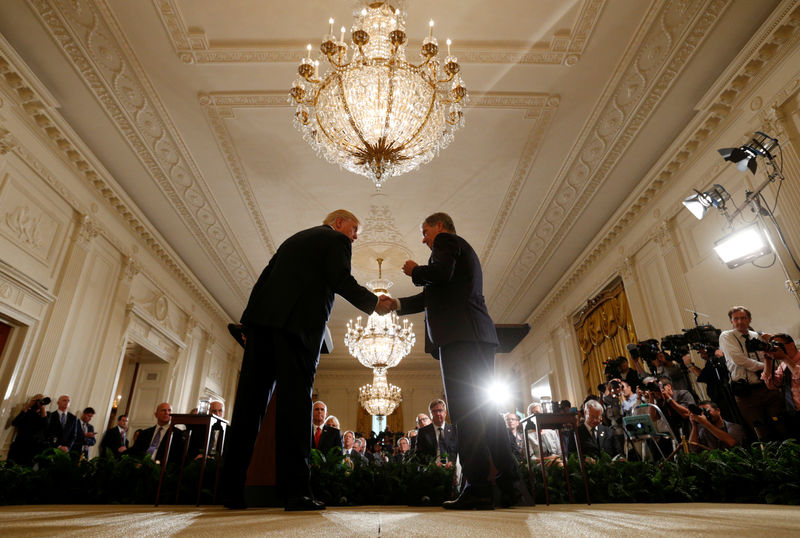By Steve Holland
WASHINGTON (Reuters) - President Donald Trump said on Monday the United States is "very protective" of the Baltics in the face of a Russian naval exercise with China in the Baltic Sea and said the United States and its allies would be able to handle any threat.
"We are very protective of that region," Trump said at a joint news conference with visiting Finland President Sauli Niinisto. "That's all I can say. We are very, very protective. We have great friends there."
A Russian naval exercise with China in the Baltic Sea has rattled tensions in the region and Trump has sought to reassure NATO allies there, sending Vice President Mike Pence on a recent trip.
Niinisto said he recently played host to Russian President Vladimir Putin in Finland and that Putin offered assurances that the Russia-China naval exercise should not be seen as a threat.
Niinisto said the United States, Finland and Sweden have also conducted training exercises in the Baltic region.
"We have to be very careful that this huge training, huge military trafficking ... does not cause any accidents or problems because we know from accidents might grow whatever," he said. "That is why I think it's important that we continue to work with NATO to enhance ... dialogue between Russia and NATO."
On a visit to Brussels in May, Trump's allegiance to NATO was thrown into doubt when he opted not to mention the U.S. commitment to the NATO treaty's Article 5, which says an attack on one member is an attack on all.
He later cleared up the confusion, saying he was committed to NATO's common defense.
Trump entered office hoping for better U.S. relations with Russia but his effort has failed thus far to bear fruit amid continuing questions surrounding Russian meddling in last year's U.S. presidential election, something both Moscow and Trump deny. He signed legislation early this month imposing a new round of U.S. sanctions against Moscow.Trump called the Baltics "a very important part of the world."

"These are all threats we will be able to handle if we have to. Hopefully we won't have to handle them but if we do we'll be able to handle them," he said.